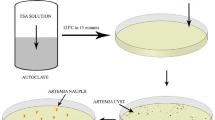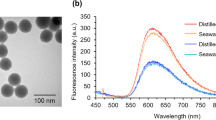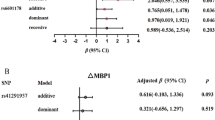Abstract
Extract: The nauplii of the brine shrimp Artemia salina are dependent upon the function of their salt gland to maintain osmotic pressure within narrow limits. A number of drugs interfere with this function and are lethal to the nauplii. Saliva and serum from normal persons, patients with cystic fibrosis, and obligate heterozygotes were tested for lethal effect against brine shrimp nauplii. At salt concentrations between 100 mM and 2.5 M no difference was found among the phenotypes. At lower concentrations a difference was noted occasionally between some normal subjects and some individuals carrying one or two genes for cystic fibrosis. Data from an independent series of experiments indicate that the naupliar deaths result from distorted ratios of Na+/K+ and not from a specific gene product. No difference was noted in the O2 uptake of nauplii treated with saliva or serum obtained from normal subjects, patients with cystic fibrosis, or obligate heterozygotes.
Speculation: The factor in cystic fibrosis that interferes with resorption of sodium from the parotid gland of the rat does not seem to interfere with the larval salt gland of the brine shrimp. Under the conditions tested, this makes it unlikely that brine shrimp can be used to diagnose cystic fibrosis.
Similar content being viewed by others
Log in or create a free account to read this content
Gain free access to this article, as well as selected content from this journal and more on nature.com
or
Author information
Authors and Affiliations
Rights and permissions
About this article
Cite this article
Hodes, M., Thomas, J., Morgan, S. et al. Do Brine Shrimp Diagnose Cystic Fibrosis?. Pediatr Res 9, 812–816 (1975). https://doi.org/10.1203/00006450-197511000-00002
Issue date:
DOI: https://doi.org/10.1203/00006450-197511000-00002



